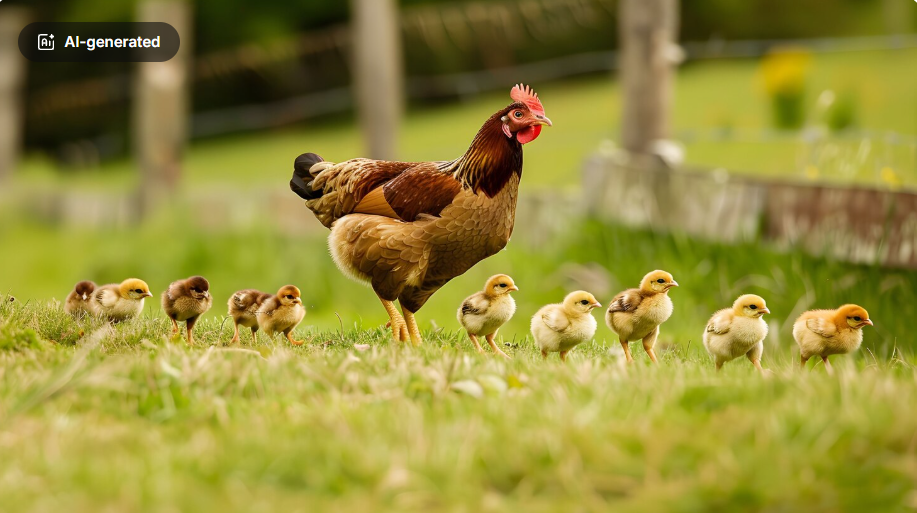-
Новости
- ИССЛЕДОВАТЬ
-
Страницы
-
Группы
-
Мероприятия
-
Reels
-
Статьи пользователей
-
Offers
-
Jobs
-
Форумы
-
Кинозал
When Is a Chicken Fully Grown? What Small-Scale Poultry Farmers Need to Know

Raising chickens can be rewarding, but understanding when your birds are fully grown is essential for planning feed, housing, and egg or meat production. Many new farmers assume growth is complete once the chick looks like an adult, but that’s not always true. Knowing the exact stage of maturity ensures you manage resources wisely and maintain a profitable operation.
Why Chicken Growth Stages Matter for Small-Scale Farmers
Small-scale poultry farming is not just about feeding and housing birds; it’s about timing. If you misjudge when a chicken is fully grown, you may waste feed, reduce production efficiency, or even compromise health. For instance, slaughtering too early results in less meat, while waiting too long can affect tenderness and feed conversion. Similarly, for egg layers, early laying can cause stress or health issues.
Modern poultry farmers also run websites to market their farm products and educate customers. For those creating a farm website, using a poultry farm WordPress theme helps showcase services, display growth timelines, and share tips for buyers. This digital presence makes your farm look professional while helping potential customers understand why your chickens are high-quality and well-raised.
Common Misconceptions About Full Growth in Chickens
One common belief is that chickens are fully grown once they look adult. In reality, physical appearance can be misleading. Most breeds reach their full size between 16 and 24 weeks, but maturity depends on breed type and purpose—broilers grow faster than layers.
Another mistake is assuming that once a chicken lays eggs, it has reached complete maturity. While egg production starts at sexual maturity (about 18-20 weeks), muscle development can continue beyond that stage. Waiting for full development can enhance meat quality and size, making it important to track age and breed-specific timelines.
The Science Behind Chicken Growth Stages
Growth in chickens happens in phases:
-
Brooding Stage (0–6 weeks): Chicks need warmth and balanced starter feed.
-
Growing Stage (6–14 weeks): Rapid muscle development occurs, and proper feeding is crucial.
-
Finishing Stage (14–20 weeks): Birds reach near-adult size, but some muscle growth continues.
-
Maturity (20+ weeks): Egg layers start producing, while meat birds reach ideal weight for processing.
For most standard breeds, full physical maturity happens around 24 weeks, though commercial broilers can be processed as early as 6–8 weeks because they’re bred for fast growth. Heritage breeds take longer, sometimes up to 30 weeks, especially if raised for show or specialty markets.
Why Timing Is Crucial for Profitability
Getting the timing wrong can cost small-scale farmers significantly. Overfeeding chickens beyond their growth potential wastes resources, while processing too early reduces profit margins. Similarly, early egg collection can stress hens, leading to lower long-term productivity.
If you run a poultry farm as a business, these details matter even more. Customers expect consistent size and quality in meat or eggs, and your pricing depends on efficiency. Whether you sell locally or online, showing that your poultry reaches full growth before marketing builds trust.
For farmers building a digital presence, integrating a well-designed poultry farm theme into your website can help communicate these points effectively. It allows you to create sections on breed details, growth timelines, feeding practices, and even photo galleries to show healthy birds at each stage.
Practical Tips to Determine If a Chicken Is Fully Grown
Here are some signs that your chickens have reached full growth:
-
Body Weight: Check breed standards; for example, Leghorns average 4–5 pounds when mature, while larger breeds like Orpingtons can exceed 8 pounds.
-
Feather Condition: Adult birds have fully developed plumage, while younger ones may have patchy feathers.
-
Comb and Wattle Size: Fully grown chickens usually have larger, more vibrant combs and wattles.
-
Behavior: Mature chickens exhibit stable social behavior and, for hens, consistent laying patterns.
Monitoring these indicators helps you decide when to shift feeding programs, separate meat birds for processing, or begin breeding and egg collection.
How to Plan for Growth in a Small Poultry Business
For new poultry farmers, planning is everything. Start by selecting breeds that match your goals—meat, eggs, or dual-purpose. Track their age and weight using a simple chart, and adjust feed based on growth stages.
Also, think beyond the physical farm. In today’s market, customers often discover farms online. A strong website with educational content about chicken growth can set you apart. Use your site to share timelines, feeding practices, and health tips. Including growth-related blog posts not only informs your audience but also improves your online visibility.
Final Thoughts
Knowing when a chicken is fully grown is more than a technical detail—it’s a key factor in running a successful small-scale poultry business. By understanding breed differences, monitoring growth stages, and aligning your marketing efforts, you can maximize efficiency and build trust with customers. Whether you’re raising birds for meat or eggs, timing matters. Combine good farm management with a professional online presence, and your poultry farm will stand out both in quality and credibility.
- AI
- Vitamins
- Health
- Admin/office jobs
- News
- Art
- Causes
- Crafts
- Dance
- Drinks
- Film
- Fitness
- Food
- Игры
- Gardening
- Health
- Главная
- Literature
- Music
- Networking
- Другое
- Party
- Religion
- Shopping
- Sports
- Theater
- Wellness


